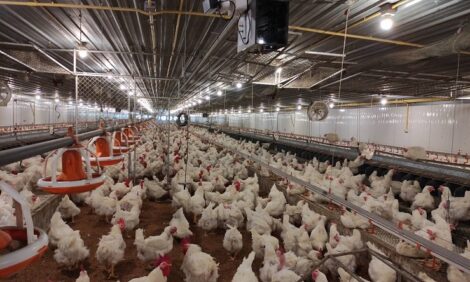



New Poultry Screening Rule May Put Public at Risk
CANADA - A senior veterinarian has criciticised the latest regulation from Canadian Food Inspection Agency (CFIA), saying that public health is endangered.Senior federal veterinarian, Dr Valerie Coupal says the food safety agency is compromising public health by putting slaughterhouse workers in charge of deciding when poultry is too diseased or contaminated for human consumption, reports TheStar.
In an affidavit filed in federal court, Dr Coupal alleges her employer, the Canadian Food Inspection Agency (CFIA), has dismantled a crucial element of food safety oversight by shifting responsibilities for poultry inspection from professional veterinarians to unqualified meat plant workers.
"This practice raises substantial concerns for public health," she writes in the document that forms part of a judicial review application by the Professional Institute of the Public Service, a union representing 611 federal veterinarians and other professional federal employees.
The union's notice of application filed in federal court says changes to the country's inspection system – dubbed the 'poultry rejection program' – are 'contrary to the public interest' because they replace qualified veterinarians with unqualified people who are 'not subject to public scrutiny'.
It seeks a review by a federal judge to determine whether the new policy is in breach of current meat inspection regulations.
Meat plant employees are not properly trained to detect poultry carcasses unfit for human consumption, says Dr Coupal's affidavit.
"Veterinary training includes in-depth knowledge of animal pharmacology, pathology, microbiology, virology and pathogeny. This knowledge makes it possible to ascertain a herd's general health, which may lead to carcass condemnation," the 19-year federal veterinarian writes in her affidavit.
By contrast, meat plant workers assigned to reject potentially dangerous poultry are trained for four weeks at the most, she wrote.
The new protocols are already in place in several slaughterhouses with plans for a national rollout.
Citing a 2003 incident at the Quebec plant where she is veterinarian in charge, Dr Coupal said she stopped the slaughter of poultry because the birds were smaller than normal and 'abnormal in colour', she wrote. Plant employees had approved the birds for slaughter.
Testing showed the birds were unfit for human consumption and displayed muscle damage, possibly caused by an overdose of drugs used to control parasites,
The CFIA has until the end of the month to file its response. Tim O'Connor, a CFIA spokesperson, said the agency does not comment on matters before the court, concludes the report in TheStar.








